Kevin Lluch
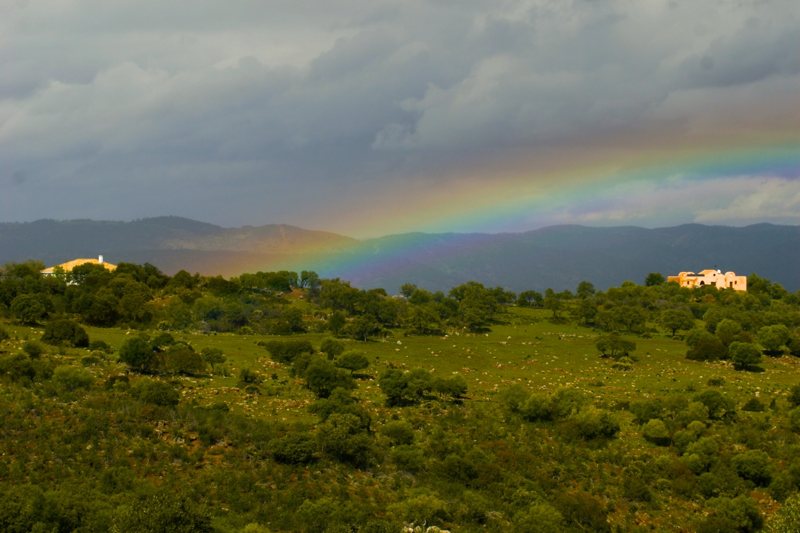 In a recent visit to the community of Los Portales, Luciano Furcas, good friend and wise disseminator of Permaculture, told us that what we were doing was "Human Permaculture". Since my knowledge of Permaculture was quite limited, his statement intrigued me and stimulated me to want to know a little more about it. And I was very surprised to discover that the principles of Permaculture apply perfectly to community life. Through them I will share the essential features of our experience.
In a recent visit to the community of Los Portales, Luciano Furcas, good friend and wise disseminator of Permaculture, told us that what we were doing was "Human Permaculture". Since my knowledge of Permaculture was quite limited, his statement intrigued me and stimulated me to want to know a little more about it. And I was very surprised to discover that the principles of Permaculture apply perfectly to community life. Through them I will share the essential features of our experience.
Permaculture talks about how to "create sustainable human habitats following natural patterns, that is, the durability of living natural systems and human culture."
Thirty years may be nothing in the scale of the evolution of the cosmos, but on the scale of the durability of community projects in our modern societies we can say without false modesty that it is a long time.
In our case, everything started back in the late 70's, when a group of people gathered in Brussels around a Jungian therapist and analyst with a growing commitment to an inner work, with a path of self-knowledge and personal evolution. In addition to psychodrama and other psychotherapeutic and / or shamanic techniques, the main tool of this work was dreams. Dreams, which constitute a way to access the hidden or unknown dimensions of ourselves, tell us about our areas of suffering as well as our defensive strategies in the face of this suffering, but also open us to our dormant potential, to all that that we can become, both individually and collectively. In addition, dreams put us in touch with the collective energy field, in the sense expressed by Lyne McTaggart in her book "The Field" or Gregg Braden in "The Divine Matrix".
Below I will develop some of the basic principles of Permaculture in light of those thirty years of experience of community life:
1. "Observe and interact"
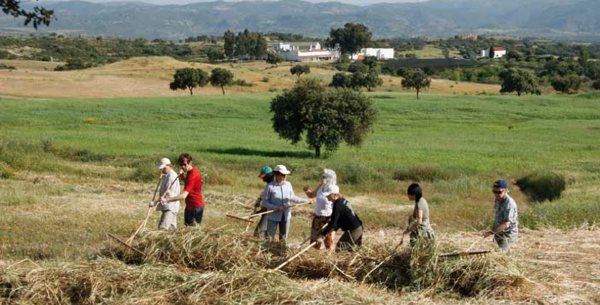 To observe means to accept without fear or prejudice all the components of the human soul. In nature, we all accept that a viper, a hyena or a cactus have their place like an eagle or a lion, but when our conscious mind intrudes, we all tend to identify with the eagle's gaze or the lion's strength. And we forget with great ease that in our soul there are also hyenas and vipers, mushrooms and pungent blackberries.
To observe means to accept without fear or prejudice all the components of the human soul. In nature, we all accept that a viper, a hyena or a cactus have their place like an eagle or a lion, but when our conscious mind intrudes, we all tend to identify with the eagle's gaze or the lion's strength. And we forget with great ease that in our soul there are also hyenas and vipers, mushrooms and pungent blackberries.
To observe and interact with our shadow zones or our "sleeping potentials", dreams are once again a privileged tool. Sharing dreams creates connections of a very particular quality between people. Some of you will know the anthropological studies on tribes like the Senoi, who maintain the custom from time immemorial of sharing their dreams around the fire. Anthropologists clearly attribute to this custom the fact that these tribes are among the least aggressive, among the most cooperative.
So, those first years of intense introspection, essentially through dreams, gave us the fruit of a fundamental awareness of our history: life in community was a great catalyst for that inner work, our creativity and evolution. We understood that through human relations and coexistence we were moving towards what Jung called individuation. Individuation is a process that makes us more and more unique, more complete, but which, in parallel, brings us closer and closer to others.
The inevitable frictions, tensions and discrepancies, the need for an increasingly intense relational commitment accelerated the personal evolution of each one of us.
We understood that the conscious mind stimulates discernment, analysis, the need for each of us to confirm our separate identity, hence the competitiveness. In a complementary way, the connection of the unconscious (made visible through dreams) generates links of a different quality, deep and respectful, generating in turn symbiotic and cooperative relations. The security we experience when we show our darkest and most painful areas through dreams and receive nothing but respect, empathy and support, helps us to let go of our defensive attitudes and allows us to strengthen ties based on respect, mutual help, trust and love
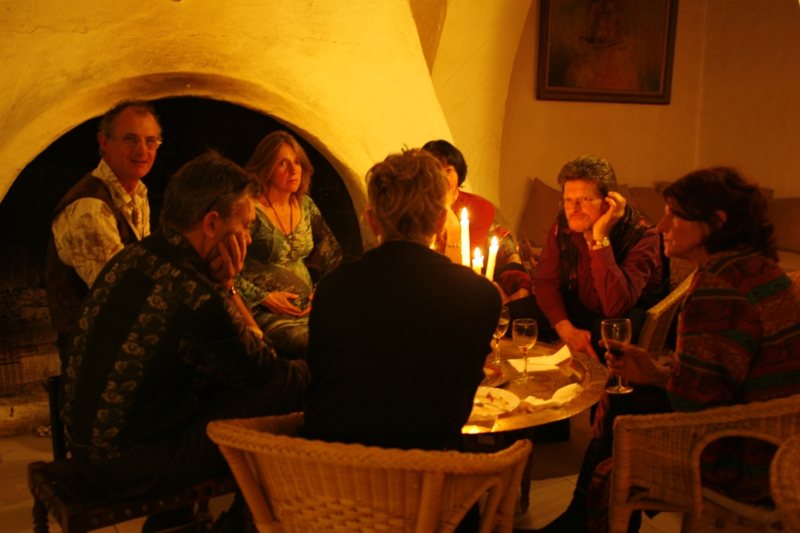
2.- "integrate more than segregate"
In this way, we put into practice another basic principle of permaculture: "integrate rather than segregate". Life in community, always with inner work as a guiding thread, was the engine of a deep integration of each one in an increasingly creative collective. Through opening more and more to the invisible and making it more and more conscious the next step in the group field emerged: we should look for a place to live in nature. In a natural environment, with less "distractions" and / or compensations, the inner work could only be intensified; the connections with the essential, with the collective energy field, with our potential as a group were undoubtedly going to deepen.
Letting ourselves be guided by intuitions, dreams and synchronicities, we were presented with the opportunity to get a beautiful and vibrant piece of land in the Sierra Norte of Seville. The mere fact of acquiring it was a powerful challenge for us, since the seller wanted to cheat us and keep the money although he could not sell us the land because he had mortgaged it. This dramatically tested our commitment, the clarity of our intentions, the firmness of our desire to take root, to incarnate ourselves more and more. And it helped us to lose many fears, and not to forget, as I said before, that the human soul is also full of hyenas and cacti. Having won the legal battle the evolution of our collective was for many years focused on our integration in our environment and especially in the construction of our homes and the education of our children. When the immediate needs for shelter and energy had been covered, a good part of our energy was turned towards agriculture, farming, reforestation, beekeeping, horses, etc. That in turn facilitated a progressive awareness of our deep connection with the environment. The intimate bond between us and this land, between us and the spirit of this place was emerging little by little. Working its aridity we became more aware of our own personal aridity. By removing tons of stones from our fields in a conscious and "connected" way, we also took them away from our hearts, and our land gave back to us with a vengeance. Taking care more and more of our water, treating it as a channel of regeneration and not of evacuation, we managed to get the quantity and quality of water we needed.
That is, the fruits of our inner work grow in harmony with the fruits of our fields, gardens and orchards. I guess that's what our friend Luciano meant when he said that we practice "human permaculture".
In addition to cereals, vegetables, fruits, medicinal herbs, nuts, honey, we make our goat cheeses, a small production of wine and, one of the developments that has brought us a lot of satisfaction, for a few years we have made our own olive oil , a delicious golden elixir that we obtain with a stone mill in the purest traditional style.
This movement towards self-sufficiency is not intended to exclude others or isolate us, but seeks to make us more autonomous, more fully responsible for our lives, as co-creators that we are, and stop complaining and feeling victimised by the political-economic system, of our past, our families, bosses, schools, etc ... And it helps us to approach others moved by desire and interest, not by necessity.
And it also allows us to enrich our ecosystem through another basic principle in permaculture:
3.- "use and value diversity"
In permaculture we talk about stacking, complementing, generating synergies, the opposite of compartmentalising or separating crops.
On a human level, this principle is equally true: Although at times "excessive" diversity could be perceived as a threat to the unity of the group, reality shows that the more aspects of the human soul that we include in the group, the more enriched the same and more stable becomes our "ecosystem".
If we rely only on the visible or on what we have in our conscious mind we need great ideological affinity or belief systems to unite in a common project. On the other hand, if we include in our process all the invisible, the mysterious and the unconscious, our connection is established on the plane of the soul, and in the external dimension we tolerate diversity much better. In our tribe there have been and there are people of different nationalities, social, cultural, professional, religious, etc., and this has never prevented the whole from moving forward, as long as there is a deep commitment to inner work.
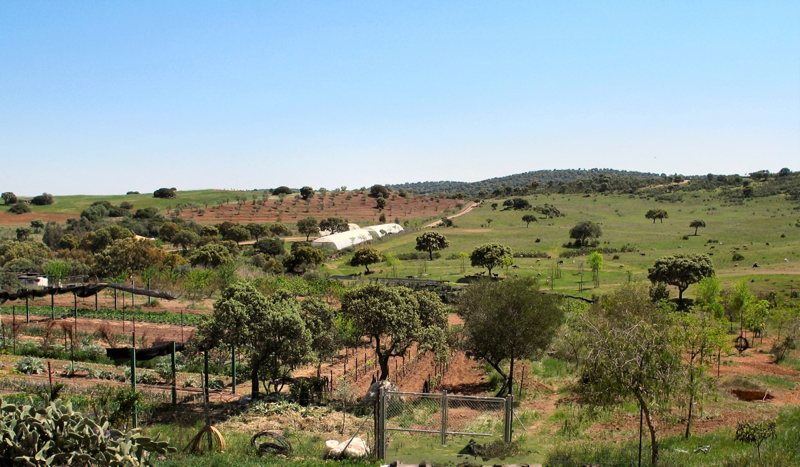
4.- "use the edges, value the marginal"
Let's examine one more principle of Permaculture: "use the edges, value the marginal": Working on that edge or wonderful interface between the inert earth and the atmosphere that is the living soil, we learn to perceive the points of friction or separation as points of exchange and of great opportunities, as generators of fertility. And we learn to live on the edge of another great exciting frontier, that which separates or connects, according to each case, our consciousness and our unconscious. Learning to hold our gaze at the same time on the conscious image we have of ourselves and all the information that comes from dreams, synchronicities, ailments and bodily symptoms, environmental signals, etc. we generate a highly creative tension, we allow resources to emerge in us that remain hidden if we only "focus" towards our more "presentable" profile, if we look at only one side of the threshold.
5 .- "Stop producing waste" and "Create and store energy"
Two new principles follow, which I am going to link: "Stop producing waste" and "Create and store energy". On the natural level, it is not necessary to dwell on the importance of recycling and the regeneration of ecosystems. However, on the human level we are frankly clumsy in that aspect: "Recycling" or converting our traumas / sufferings, our defensive / aggressive attitudes into sources of experience, knowledge or creativity is a task that is really hard for us. Every time we despise or assault someone we actually use them as a "rubbish bin" in which we throw away our "waste", generated by years and years (or lives?) of frustrations, traumas, losses, disappointments or unattended potentials. Community life seems to us the best context for learning to "recycle": to take out all the teaching about ourselves hidden in the depth of our traumas or our defensive attitudes. There is no better recycling school than learning to find courage at the bottom of our fears, to gain self-esteem transcending envy and rivalry, to overcome loneliness by establishing links and connections, to calm our anger by developing compassion.
Concretely, for example, in our history as a group there have been inevitably differences, divisions and separations. And we have learned not to exclude or despise "discordant" people. Learning from these dissensions, we accommodate in the heart of our group all those who have contributed to its evolution and development. And in that way we generate the smallest possible energy "waste".
6.- "Use and respond creatively to change"
The following principle of Permaculture that I wish to comment reads: "Use and respond creatively to change." How we manage changes, how we adapt to them, how we accompany them, is a key element in the durability of a living system, including ours. This capacity to positively live the changes, to learn from them, to accompany the shocks and frights with which life stimulates and renews us is now known as resilience, and the scant resilience of modern societies is flagrant: in general we live attached to the external image, "forced" by the dominant value system to compete, equipped with multiple defensive attitudes to protect our vulnerability.
From our experience, life in community creates a safe context in which little by little we can open up, stop competing and learn to create without rivalry. But this inescapably implies an inner work that transfers our strength from our outer shells to our inner Being. The armor protects us from our fragility, but its rigidity makes us live changes as threats. The more we strengthen our essence, the more flexible and permeable we become externally, and the better we adapt to this changing world.
The old Chinese wisdom has always told us that the only real thing is change, and it is not necessary to dwell here on the frantic changes and acceleration that our planet is experiencing right now. To consciously accompany these changes, the observation of nature is very useful: we observe that the adoption of successful innovations in communities often follows a pattern similar to the ecological succession in nature.
An example of ecological succession is the use of fast-growing nitrogen-fixing trees to improve the soil and provide shelter and shade for the more valuable slow-growing trees that provide more food: a process that takes us from the pioneers to the climax. In groups and / or communities, the pioneers in solutions are often visionary and stubborn individuals, but in general more inclusive, solid and "resonant" leaders are needed to consolidate new structures.
In that sense, I want to consider an essential change in our current world, that life in community allows us to live with fullness and passion: Our evolution reveals that the spiritual dimension of the human being does not develop so much based on adherence to a School, Church or belief system, nor based on an ascetic and solitary practice, as it was for centuries. Nowadays, spirituality comes when we open our hearts to others and share both our highest essence and our zones of shadow and suffering. It is when our interpersonal relationships become creative, based on trust, respect and collaboration that a higher reality manifests and guides us, it is in those moments that the limits are transcended and the deep meaning of life appears, and we can access the infinite mystery that inhabits us and that surrounds us.
7.- "Design from patterns to details"
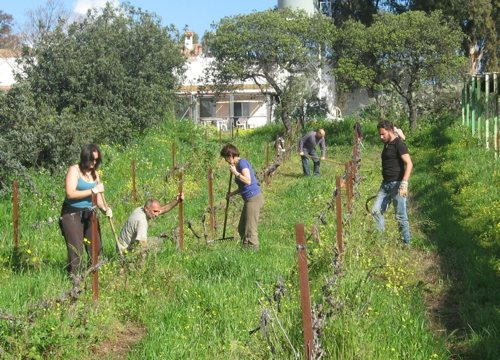
I will end up by directing attention to an essential principle of Permaculture: "Design from patterns to details" that allows us to reflect on the coherence of a living system, the overall vision, the perception of its global evolutionary process, in short it helps us to tackle an exciting but sensitive and difficult topic, that of leadership. The suffering generated by the abusive use of power throughout history has fed in many of us the dream of a society without bosses, without authority. But, to move in that direction, we need to become aware of the hidden patterns to which we remain loyal, to understand the role of leadership and authority in our lives.
If we unconsciously obey patterns that keep us in infantilism or irresponsibility, we allow someone to confuse leadership with taking power over others and abuses automatically appear. If we obey patterns of rebellion, we find it very difficult to accept the natural leadership that each one can exercise in the areas in which they are naturally gifted, and we engage in sterile and interminable egos disputes, which only pursue "being right"; that is to say to impose ourselves on others. Paradoxically, our patterns of rejection of authority keep us "entangled" in power struggles.
On the other hand, if we manage to connect with the patterns that make us unique, with our creative potential, if we feel and take full responsibility for our lives, (we "empower" ourselves), we fully assume our own leadership and we can naturally accept the leadership of others, without submission or abuse of power.
But that is not an easy task, since it requires us to definitively renounce all projection that makes external instances (parents, teachers, bosses, the system, etc.) responsible for the difficulties in our life.
In our tribe, we each work to assume the maximum power over our life, which allows us to accept a leadership on a higher and deeper level: in reality the leader is in the invisible world, in the collective unconscious, there where roles are designed, where "patterns" are formed. The energy field of the group chooses the leader insofar as it is the best "antenna" of the forces in movement in the collective field, and the field pushes him/her to express him/herself. This antenna function allows the leader to make visible the highest dream of the group, as well as the connection between everything and everyone. And to the extent that this connection becomes more conscious within the group, the level of consciousness of the group increases. In addition, the leader is the guardian of coherence in the activities of the group, the one who sustains the vision and feeds it.
When the leader cannot exercise his/her functions at any given moment, another person takes over because the group's field pushes him/her to intervene. Often, few people realize these role changes, as we speak in terms of skills and competencies (leadership), not power. As I mentioned earlier, the power of some over others only exists to the extent that one does not sufficiently assume one’s own power over oneself. If we project the origin of our problems into external elements, we cannot help but expect the outside to provide us with a solution. If we have the courage and the lucidity to own the origin of our problems, the solution will emerge, sooner or later, from within us. The details of our lives depend, then, on what "patterns" we remain faithful to, and this is valid equally for our life as a group or as a community.
In our community, the leader exercises a role like the others. This role already exists in the field of the group, and is expressed or manifested through the person whose personal psyche allows its concretization as designed by the group in the group field. When we face a serious problem, we meet and, with our minds and our hearts interconnected, the solution, already existing in the invisible world, appears thanks to all the "antennas" working together. And nobody claims to be the author of the find.
How do we know that the field chooses a person as a leader? Not through electoral scrutiny, but through dreams, synchronicities and other signs coming from the invisible world, from the unconscious of the group. In this way, power can never be associated with the person who assumes the leadership, which reminds me of one of the many wise sentences of the Y-King: "The leader or the boss is there to prevent anyone from taking the power."
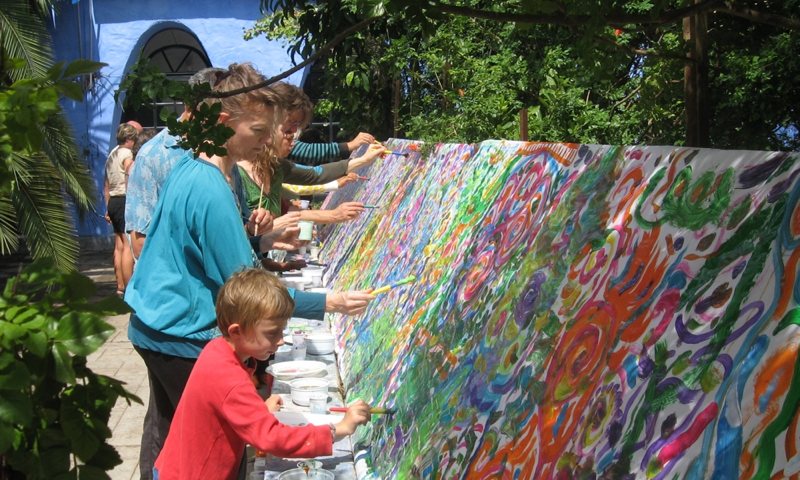
ECOHABITAR no 33. Spring 2012